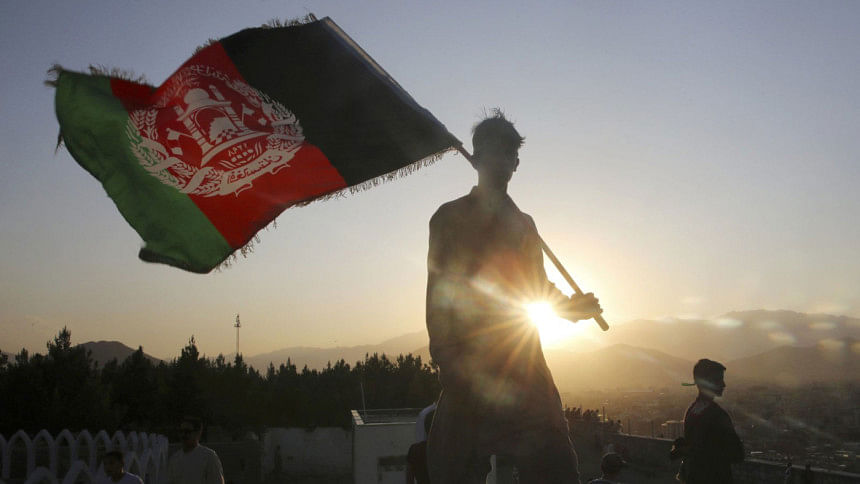Regional economic programme vital for Afghan Peace

Achieving peace in Afghanistan is a strenuous and complex task due to the overlapping interests of many that have turned the country to the forefront for geopolitical rivalries.
The consensus of regional countries involved both directly and indirectly in the conflict is essential to achieving enduring peace. Anything less will only transfer the conflict to different parties resulting in the continuation of the war. While addressing the various conflicting views may be difficult if not impossible, the economic impact of Covid-19 has created a common ground for regional players to work together for direly needed economic recovery and growth. It may be time to transform the economic pressure into an opportunity for economic cooperation and regional integration that can have a boosting effect on the Afghan peace process.
The sudden spread of Covid-19 caught policymakers off-guard, making it difficult for some central and south Asian countries to develop a well-thought strategy for combating the backbreaking economic impact of the virus. These countries who were already experiencing economic and financial challenges further slipped to the verge of deep recessions. Pakistan's rising public debt of 87.5 percent of GDP, inflation of 11.8 percent, a contracting economy with a projected growth of only 2 percent in 2021, a growing population whose 24.3 percent live under the poverty line and several other worsening economic indicators, reported by the World Bank, signifies the need for urgent action. Similarly, Iran who has been hit hard both by Covid-19 and US economic sanctions and India's slowing economic growth and increasing demand for energy necessitates the need for growth-oriented policies and strategies. Energy-rich central Asian countries, whose economies have not grown much since their independence from the Soviet Union, are struggling to liberalise their commodity-based economies, develop soft infrastructure, connect, and begin expanding their economies.
It is beyond doubt that economic integration and enhanced connectivity of south and central Asia can result in propitious economic conditions and favourable opportunities for all countries of the region. Enhanced regional connectivity that has been weak or non-existent due to the long war in Afghanistan is essential for realising potential economic benefits. The current situation may be an opportunity to focus on connectivity and, thus, secure cooperation in peace effort through an economic programme. The programme could connect Pakistan, India, Tajikistan, Uzbekistan, Turkmenistan, Kazakhstan, and Kyrgyzstan through large transnational projects. Afghanistan, due to its geographical location, can play a key role in such connectivity by providing safe routes for trade and other economic exchanges. This will induce cooperation in peace efforts in Afghanistan as the success of the programme will depend on stability there.
As Afghan peace effort progresses, a concurrent multinational regional economic programme, supported by multilateral development agencies with investment contributions from the countries involved, that includes energy, transportation, and trade projects will result in regional integration, enhanced trade, and investment opportunities. A programme that includes transnational projects similar to CASA 100 that transfers energy from central Asia to Pakistan and India through Afghanistan will deflect the focus of the region from conflict to collaboration. Pressured by deteriorating economies and demand for action by its citizens, such a programme will compel regional players to cooperate who, otherwise, may oppose each other in Afghan matters. The programme could provide a framework for economic connectivity, fostering cross-nation cooperation that will not only have a positive impact on the peace process in Afghanistan but could be instrumental in sustaining it.
Besides, sustaining endured peace inside Afghanistan is not possible if the population, including Taliban fighters, are not provided with a livelihood alternative. Taliban gained strength over the years, not because of their religious views but due to the availability of a large destitute and deprived pool of rural population, who did not benefit from the billions of dollars the world poured into the country. Living in meagre and lawless conditions with no alternatives to livelihood, many joined fighting groups to simply survive. According to the World Bank's new projections, over 71 percent of Afghans will fall below the poverty line this year. Access to a proper justice system, schooling, and effective governance is either very limited or does not exist, creating a perfect recruiting pool of people for terrorist and government-apposed groups. US-Taliban peace agreement and a possible Afghan government and Taliban peace deal will only translate into long-term stability and sustained peace if Taliban fighters and the poverty-stricken population are provided with economic opportunities enabling them to earn a livelihood for their families. The regional economic programme could provide livelihood opportunities for Afghans once multinational projects are implemented.
The peace agreement between the Taliban, the US, and the Afghan government will not lead to stability in Afghanistan unless all regional countries and groups reach an understanding. The worsening economic conditions of the region due to Covid-19 and the growing need for recovery and economic growth may be an opportunity to attain consensus by converging the regional countries into an economic programme. A conducive multinational regional economic programme that focuses on economic integration and development, supported by multilateral development agencies will deviate attention from war to economic development in the region, having a fortifying effect on sustained peace in Afghanistan.
Gul Maqsood Sabit teaches business at Ohlone College of Fremont, California, USA. Formerly he was Deputy Minister of Finance for the Afghanistan government and President and CEO of Pashtany Bank, a state-owned bank in Afghanistan.
Email: [email protected]

 For all latest news, follow The Daily Star's Google News channel.
For all latest news, follow The Daily Star's Google News channel. 



Comments